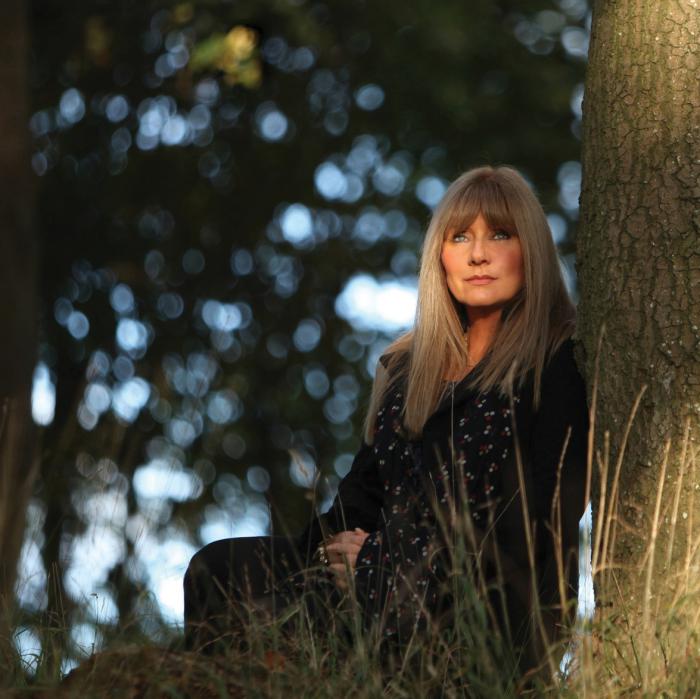To Hell and Black
MALCOLM ROGERS talks to Frances Black about alcoholism, motherhood and the influence of her sister, Mary, on her burgeoning musical career.
FRANCES Black's journey to her present status as one of the leading lights in Irish music has not been without its setbacks. Apart from having to carve out a career in the shadow of her big sister, Mary, Frances has also had to contend with an unplanned pregnancy, a chronic inferiority complex, a failed marriage, problems with her vocal chords — and alcoholism. But paradoxically, and in common with a lot of people who have seen many ups and downs in their life, it has made her a very likeable, unpretentious and surprisingly communicative person.
The facts of the matter first. Frances is the youngest of the five Black children, born and reared in a poor part of Dublin: "My ma was over forty when I came along, and to be honest, she was exhausted with the daily grind of life. Maybe it was her vulnerability, but when I was a kid all I wanted was to be with her. I wasn't very good at school and left when I was 16 — supremely unqualified for anything and totally convinced I was a thickhead."
Music, however, was in Frances' blood, and she first performed at the famous Slattery's when she was 16. To finance her singing she took a succession of jobs: au pair, shop assistant etc., all the while watching her sister turn into a megastar. However Frances felt anything but a budding superstar. "As far as I was concerned I was just a pimply, fat, greasy person with a stutter. I had terribly low self-esteem." Questioned closely on whether her inferiority complex arose through any sibling rivalry, she replies in the negative. And the woman has so little artifice about her that although this seems extraordinary, it also appears to be utterly true. "If Mary had any negative effect on me, it's unconscious. I certainly have never been aware of feelings of envy. Not only that — I actually owe her a lot. She saved my career. She's such a down-to-earth, no messin' sort of person, it was her who persuaded me to go solo."
But to go back in time. Ten years ago Frances made her first tentative step up the rickety ladder to success. She joined the much respected traditional ensemble Arcady, where her beautifully fragile vocals were brought to a wider audience for the first time. But it also lead to a darker outcome. Frances by this time realised she was an alcoholic. "Nothing dramatic," she explains. "But I couldn't do without the drink." So, taking the demon by the horns, she attended the Stanhope Street addiction centre for 14 months. "It was there I realised the damage I was doing to my own life," she explains, "....the effect it was having on my two children. And of course my marriage. Which eventually hit the rocks."
With alcoholism at bay, Frances left Arcady and joined up with singer/songwriter Kieran Goss. She looks terribly wistful for a moment as she describes their partnership: "I miss Kieran. I don't see him that often now. But it was a very special time in our lives. It'll never happen again and that makes me sad.... it was all very fresh and exciting. I was mad about him. I love Kieran to bits....."
But Kieran felt the pressure of the highly successful A Woman's Heart too keenly and after two years decamped back to Co. Down to pursue his own career. Frances almost gave up music at this point, but then Mary stepped in. James Blennerhasset and Arty McGlynn were brought on board and as day follows night three highly successful albums resulted.
Things now seem to be going well for Frances. She's married again, and her two children Eoghan and Aoife have turned into fine young adults — they were best man and bridesmaid at Frances' wedding 18 months ago. And of course her career is blossoming. Her earlier larynx problems turned out be nothing more sinister than severe bruising of the vocal chords, and the success of her first three albums has led Sony International to sign her up. Today Frances seems a contented woman, although one would be reluctant to use the word happy. There seems too much of a cloak of melancholy shrouding her. But then that's what probably gives her interpretation of a song such an epic emotional clout. As everybody knows — the best music is sad music. And the best songs are about unrequited love.
Frances Black will be touring Britain this autumn. Her fourth solo album, Don't Get Me Wrong, will be released by Sony International this September.

